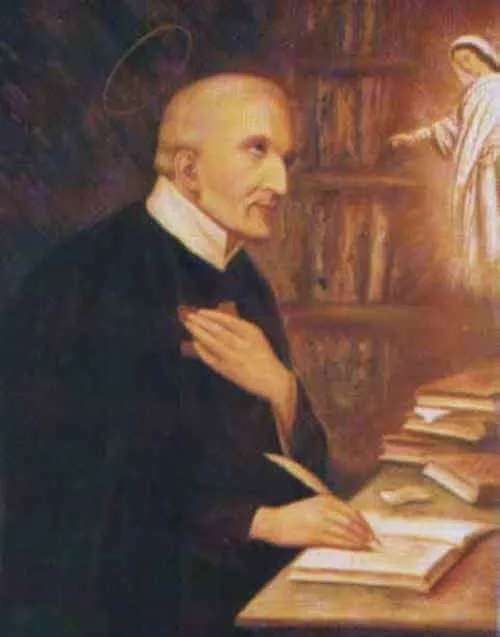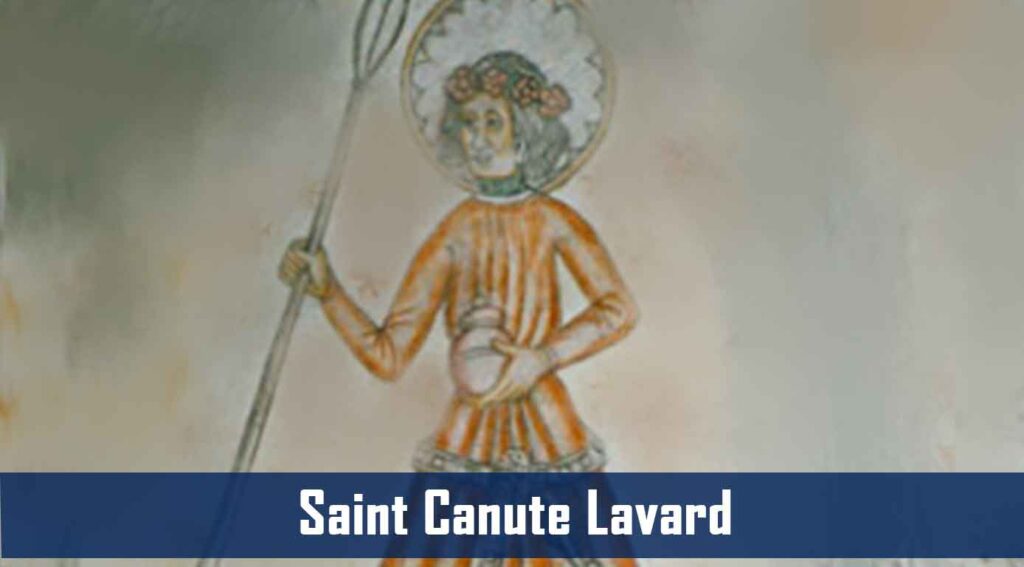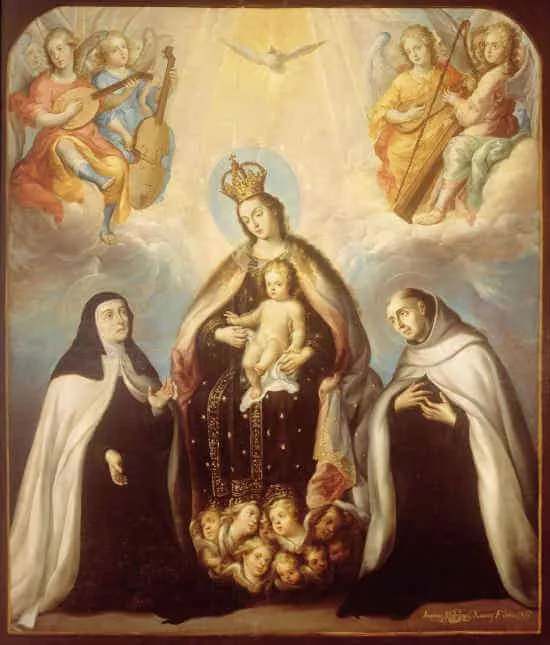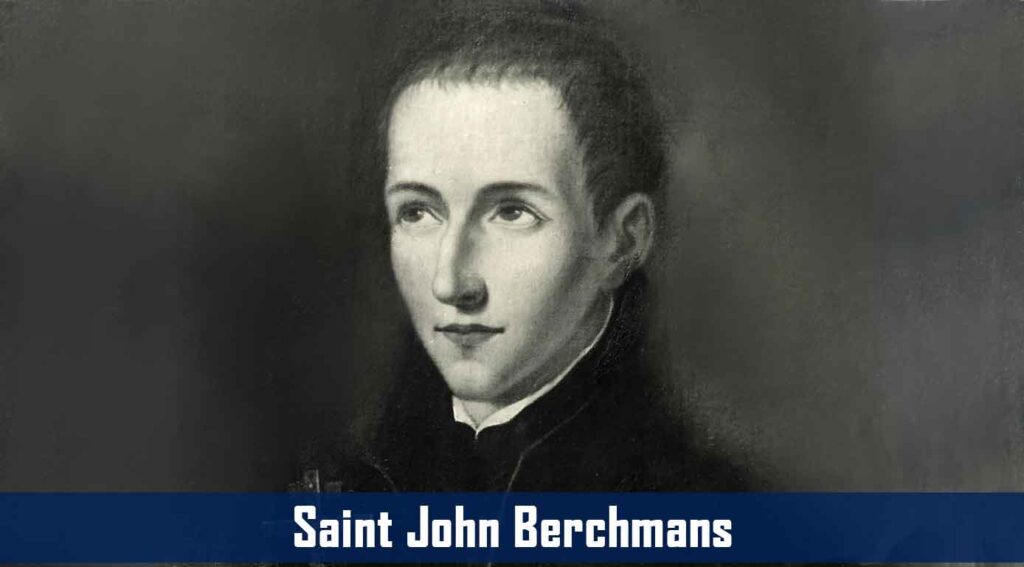1696–1787; Patron Saint of confessors and moral theologians Invoked against scrupulosity, arthritis, and for final perseverance; Canonized by Pope Gregory XVI in 1839; Proclaimed a Doctor of the Church by Pope Pius IX in 1871
Alphonsus Marie was born into the noble Liguori family in Marinella, of the Kingdom of Naples, modern-day Italy. He was the eldest of seven children and was raised in a devout Catholic home. As a boy, he mastered the harp and enjoyed fencing, horseback riding, and card games. He also exhibited a strong will and moral character. His father was a naval officer who achieved the high rank of Captain of the Royal Galleys. Due to poor eyesight and asthma, Alphonsus couldn’t follow in his father’s military footsteps. However, Alphonsus’ remarkable intelligence led his father to send him to the University of Naples. There he earned a degree in both civil and Church law at the age of sixteen, three years earlier than usual.
For the next eight years, Alphonsus won case after case as a lawyer in Naples, but his worldly success didn’t satisfy him. Indeed, he might never have lost a case until his last and life-changing one. One day, instead of rebutting Alphonsus’ excellent argument, the defense lawyer asked Alphonsus if he saw any error in his argument. Alphonsus identified a small flaw in his own case and spoke about it openly. He lost the case but was praised for his honesty. He said afterward, “False world, I know you now. Courts, you shall never see me again.” He left his profession, relinquishing wealth and prestige.
After this experience, Alphonsus went on a three-day retreat, guided by an Oratorian priest. Having found worldly success unsatisfying, he resolved to serve God alone, choosing to embark on theological studies, grow in virtue, and become a priest. His father opposed his joining the Oratorians, so Alphonsus agreed to live at home while he completed his studies. With the blessing of the Cardinal Archbishop of Naples, he was ordained a priest in 1726 at the age of thirty.
For the next three years, Father Alphonsus lived in his family home and ministered to the poor and sinners in Naples. He gathered them in the streets, speaking to them lovingly and convincingly, winning over many to Christ. The archbishop asked him to conduct his services in the local churches, which came to be known as “Evening Chapels.” These gatherings included catechesis and prayer, especially for the young and the poor, and were often led by the young people themselves, after receiving proper training from Father Alphonsus. Father Alphonsus also became a beloved confessor. People found him to be a man of great compassion, attentiveness, and concern. He treated every penitent with mercy and always offered absolution, never doubting the sincerity of the sinner’s repentance. From the pulpit, Father Alphonsus preached in such a way that everyone understood him, even the poorest and most uneducated, the saint and the sinner. In a short time, his ministry had such an effect upon the morally decadent parts of Naples that the most serious sins in the town all but disappeared.
In 1729, to deepen his life of prayer and commitment to ministry, he moved into a newly formed school for the Chinese missions but continued his ministry to the poor and sinners. He expanded his ministry beyond Naples to the even poorer and decadent peoples in the surrounding countryside. Seeing a great need to increase the work he was doing, he gained the support of the neighboring bishop of Scala to form a new congregation. In 1732, Father Alphonsus was joined by thirteen companions (ten priests, two seminarians, and a lay brother) who formed the Congregation of the Most Holy Redeemer.
The new congregation began well. Its members lived lives of deep prayer, severe penance, and radical poverty. They went out on missions as itinerant missionaries, devoting themselves to preaching repentance and mercy throughout the countryside. However, dissension soon arose over their mission and way of life. Father Alphonsus’ proposals were rejected by everyone but one lay brother and a seminarian. The rest left and formed another congregation. Father Alphonsus was ridiculed in Naples, and even the bishop was criticized for supporting him. The bishop and Father Alphonsus persevered, however, and soon new companions joined the congregation, and their ministry flourished.
For the next thirty years, Father Alphonsus worked tirelessly to form his congregation and minister to the people of God with compassion. One of the emerging heresies at that time came to be known as Jansenism, which was a movement that denied the universality of free will and that the grace and mercy of God were given to all. Jansenists viewed human nature as so flawed that only God could save souls—and was selective about whom He chose for salvation. Father Alphonsus saw grace and mercy as available to everyone and fervently preached that message. In addition to his preaching, he became an exceptionally prolific writer. In his lifetime, he wrote about 100 books and 400 pamphlets and booklets used to evangelize the people in easy-to-understand language that was also orthodox. He mastered moral theology, making it accessible and acceptable to those who needed to turn from sin. He wrote beautifully about the Blessed Virgin Mary, the way of the Cross, and the Person of Jesus Christ.
In 1762, Father Alphonsus was appointed Bishop of Sant’Agata dei Goti, the diocese just northeast of Naples. As bishop, he sought to reform the diocese, especially the clergy, and worked to implement an organized plan of evangelization. Though his rigorous approach was met with resistance, he pressed on. By 1775, Bishop Alphonsus’ health had deteriorated to the point that he suffered greatly. He became partially paralyzed and bent over, and is often depicted this way in art. He offered his resignation, and the pope reluctantly accepted it. He spent the last twelve years of his life in one of his congregation’s religious houses, writing, praying, and suffering. He eventually became blind and deaf but never stopped loving God and serving His will. In his final years, he saw divisions attack his congregation, and he himself spent his final three years being tempted with extreme scruples, demonic attacks, and spiritual darkness. All of this only led to his greater sanctity.
At times, it’s tempting to think that holiness ensures an easy life. On the contrary, the Father often permits great suffering to those who love Him the most in imitation of His divine Son. Though Saint Alphonsus suffered greatly in many different ways, he remained faithful to his heartfelt mission of saving souls. He believed in the mercy of God, brought that mercy and truth to the greatest sinners, and ensured that his mission endured time by founding a religious congregation and leaving behind voluminous writings that are understandable to all. As we honor this holy saint, ponder his central message that God is merciful and welcomes even the greatest sinner. See yourself as that sinner in need of God’s mercy, and do not hesitate to run to the Heart of the Most Holy Redeemer to find rest and peace.
Source: https://mycatholic.life/saints/saints-of-the-liturgical-year/august-1—st-alphonsus-liguori/








